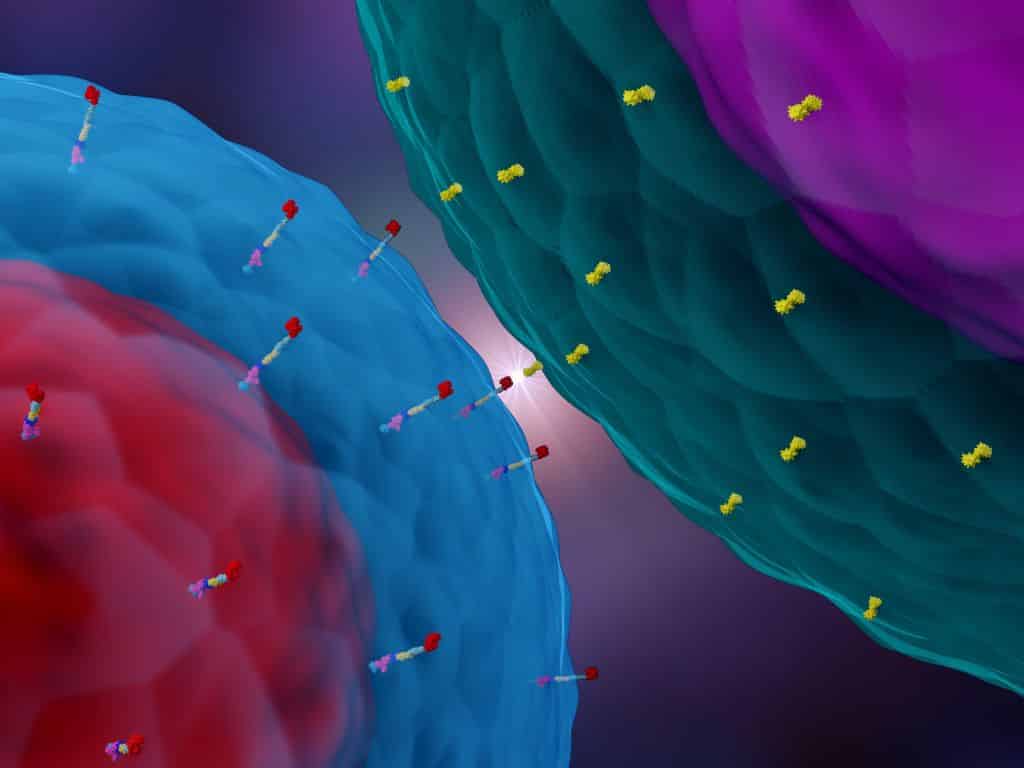The Sheba Medical Center in Israel has an advanced hemato-oncology center that offers in-house CAR T-cell therapy, the revolutionary immunotherapy that alters a patient’s white blood cells to kill cancer cells.
By keeping the entire process at the hospital, and not sending the cells to an external lab, the quality of the T-cells are better preserved and the whole process can be completed in 10 days. Sheba has successfully treated hundreds of patients with CAR-T cell therapy.

Arnon Nagler is director of the Division of Hematology and the Bone Marrow Transplantation and Cord Blood Bank at the Chaim Sheba Medical Center, Tel-Hashomer, Israel and Professor of Medicine at The Tel Aviv University, Tel-Aviv, Israel.
He has been working in the field of bone marrow transplantation for hematological malignancies for the last 25 years and is one of the pioneers of the non-myeloablative and reduced intensity/toxicity allogeneic transplantations for both malignant and non-malignant disorders. His main contributions and scientific interests are hematopoietic stem cell transplantation, hematological malignancies, cord blood biology and, transplantation, and adoptive cell-mediated immunotherapy including NK cell biology.
Dr. Nagler established the first public cord blood bank in Israel and performed the first cord blood transplants from related and unrelated donors in genetic and malignant hematological diseases in Israel.
He also attended the 5th European CAR T-cell meeting in The Netherlands recently.
What are the benefits and challenges of in-house CAR T-cell therapy?
The main benefit of in-house CAR T-cell therapy is a shorter time from leukapheresis—the process of removing white blood cells from the blood—to the administration of therapeutic CAR T-cells. In-house CAR T treatment allows the process to be done in 10 to 11 days versus a minimum of three weeks with commercial CAR therapy.
This accelerated process eliminates the need for bridging therapy, usually chemotherapy or irradiation, therefore allowing better results. CAR T therapy involves not only a highly-specialized clinical process, but also a sensitive logistical one, as cells that are outsourced to a lab for modification must be stored at optimal conditions at all times while being shipped to and from the lab.
Keeping the entire process in a medical center eliminates the extra steps involved and preserves maximum quality of the cells. A significant further advantage is that eliminating extra steps and parties involved makes the cost of the therapy much cheaper.
The challenges of in-house therapy include the initial establishment of the program, monitoring quality assurance, completing the process of dry and wet rounds, and taking into account reproducibility. The process will then take a few months to reach stability, at which point it needs to be submitted to local authorities for regulatory and national Ministry of Health approval.
Once a program is established, there needs to be a national network and committees to select and approve patients for CAR T cell therapy. Since it is a sophisticated, complex, and costly but life-saving therapy, the demand for CAR T therapy is very high, much higher than the current supply. The output ability and the number of CAR products the molecular lab can produce per week are limited, which is a major challenge for point-of-care CAR.
What are the latest advances in the field?
Some of the latest advances in the field include the development of allogeneic off-the-shelf CAR; multi-antigen CARs; CAR combined with other compounds or modes of therapy; novel constructs and thus better results; accelerated production of CAR in two days; CAR against malignancies, and even against nonmalignant diseases like autoimmunity.
What are the challenges in rolling out successful CAR T-cell therapy programs?
As previously mentioned, in order to create new CAR T-cell programs, there must be a national network and committees established to objectively select and approve patients for the highly sought-after CAR T-cell therapy. Another challenge is understanding production capability—increasing production and shortening production time are important targets to try to meet. Additionally, in-house programs must have strict QA systems in place in order to ensure good results.
How close are we to this method being a common, affordable treatment?
Far, but we are progressing in the right direction.
Could you tell me about the European CAR-T cell meeting and your role in that?
The 5th European CAR T-cell meeting took place in Rotterdam last week. It’s a joint meeting of the European Hematology Association (EHA) and the European Society for Blood and Marrow Transplantation (EBMT) and the most important European CAR T meeting globally. The meeting is attended by top experts from around the world, where all the latest developments in the field are reported and discussed.
I have been part of the faculty and participated in all of the past five meetings by giving plenary talks, and in one of them I gave the opening address. This year, I chaired a session and participated in two consensus guidelines working subcommittees.





